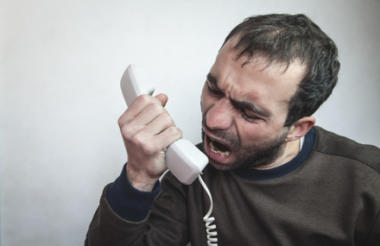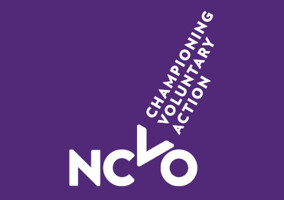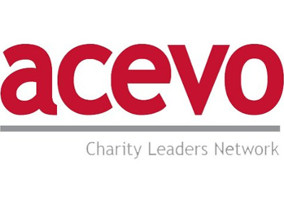I have worked at two charities where bullying was endemic. One, now defunct, was a mid-sized charity which treated staff as worthless and disposable with an arrogance that defied belief. The other, very small and run by a single family, was the most peculiar and profoundly destructive environment I have ever encountered.
Cult-like and ego-driven, fairness was not a recognised value, with favouritism endemic but precarious: over-the-top flattery could turn to the opposite on the slightest pretext, with those who fell from grace then relentlessly targeted. Anyone who made a mistake or dared to issue the slightest question or challenge was met with a degree of chilling contempt, incivility and menace that was truly extraordinary. The lucky ones were dismissed on the spot, often in breach of contractual stipulations regarding due process; the unlucky were targeted with such relentless venom that they were glad to resign. (For context, two were turned on in this way for daring to suggest having a written fundraising strategy.)
Staff were threatened in various deplorably unethical ways, lied to, snapped at, sulked at, humiliated, talked against behind their backs (including open discussion of an employee’s medical condition without consent), blithely “diagnosed” with psychological problems and subjected to breathtakingly rude, irrelevant and vitriolic character attacks, often in the form of hectoring email screeds that went on for pages. The enmeshments between the three senior staff (e.g. the “HR representative” was the CEO’s wife) ensured that the chance of a fair hearing was non-existent.
‘Turnover was astronomical’
Employees’ actual abilities were largely irrelevant, as they were used in practice as PAs, compiling the CEO’s diary, booking his travel, printing his emails, taking dictation and emptying bins, all while subjected to a level of unnecessary, absurd and counterproductive micro-management that in another context would meet the criteria for coercive control.
The average length of a career there was four months and turnover was astronomical, with the loss of over fifteen people to dismissal or resignation in a six-year period and half the office staff gone in a single year. They have come within a hair of legal action more than once, with claims finally dropped when sustained engagement became too much for already compromised mental health. Confronted with evidence of their wrongdoing and its impact on victims, their response was either to threaten (action for “defamation”, for instance), gaslight the complainant by twisting the facts beyond recognition or simply dismiss the allegations out of hand and shut down discussion. I have never met anyone with so little concern for the harm they knowingly inflicted on other people.
Their stated mission? The promotion of “empathy”.
Sometimes words and deeds not only don't match up but are diametrically opposed. Bullying is always devastating but I feel it has an even greater impact in a context where ‘values’ are supposedly everything. It affects your ability to trust not only others but your own understanding of the world, like a form of subliminal gaslighting.
‘Too easy to get away with it’
It would be comforting to assume that these examples are extreme outliers, and certainly it’s hard to imagine the second having many rivals for sheer outrageousness. However, behaviour of this kind – if not this degree – may not be anomalous at all: this sort of thing is so shockingly easy to get away with that there could be any number of these outfits around, acting with complete impunity. The first got away with it for years; the second is getting away with it still.
They are doing so with the full complicity of the trustees and despite having been reported to the Charity Commission. Trustees have clear legal obligations including preventing abuse and mismanagement, ensuring good practice and safeguarding the wellbeing of employees, all of which should be clearly understood to cover addressing bullying. Those whose duties are taken seriously are unafraid to ask searching questions, scrutinise decisions and challenge the leadership when necessary; however, when charities are run as personal fiefdoms by very dominant characters it can be difficult for even the conscientious and proactive to stand up to that pressure, and some trustees are neither. These were fully aware of what went on but “just accepted it”; one actually admitted this to an employee while another, who claimed to have had concerns for some time and promised action, in actuality did nothing and remained an enthusiastic spokesperson until their departure earlier this year.
Charity Commission remit should be extended
Nor did the Charity Commission act on the concerns raised: surprisingly, the situation described apparently did not meet the criteria or reach the threshold for taking action. Therefore, I believe that the remit of the Commission should be extended to explicitly encompass treatment of staff and volunteers as an area for potential investigation. I would also welcome mandatory reporting of these concerns by trustees, with significant penalties for those found to have known of abuses and failed to act.
Workplace bullying attacks confidence, destroys mental and sometimes physical health, derails careers, erodes trust, limits opportunities and squanders potential; in extreme cases it ruins lives. It also weakens charities as dedicated, talented and conscientious employees are driven out not only of individual organisations but often out of the sector altogether, causing a ripple effect that can’t help but impact detrimentally on beneficiaries. Therefore, I believe that it needs to be made categorically illegal, as prejudice-based bullying (“harassment”) already quite rightly is. However, this leaves victims of other forms of bullying unprotected and sends perpetrators the message that they can bully with impunity... as long as they victimise everyone equally. Maybe I’m a dreamer, but I think the bar should be set a little bit higher than that.
|
Related articles












